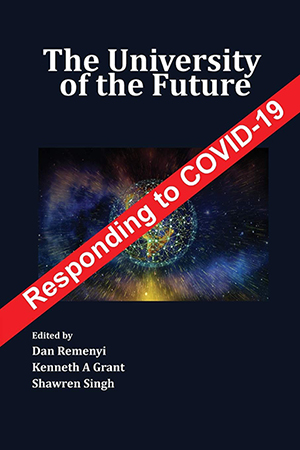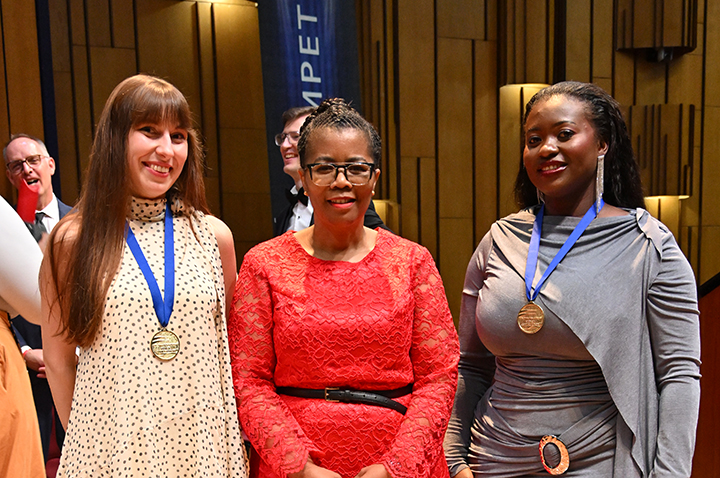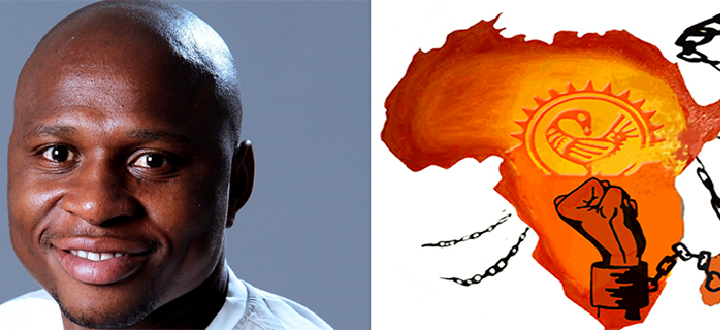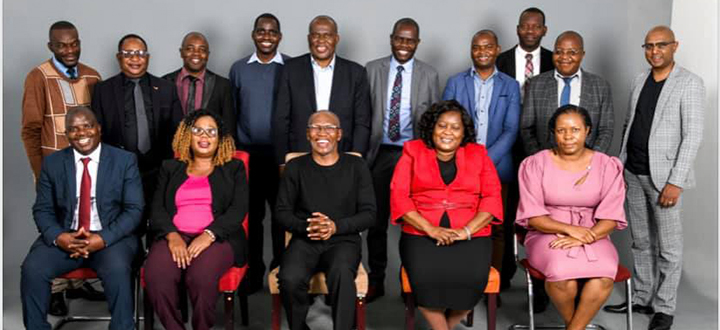
Providing affordable, accessible, high quality, relevant Science Engineering and Technology programmes

The webinar was hosted via the Zoom platform and attended by 250 people from 23 different countries across 12 time zones. The countries represented included South Africa, ESwatini, Kenya, Nigeria, Ghana, Uganda, Zambia, Zimbabwe, the United Kingdom, Northern Ireland, India and Pakistan.
The university of the future is a collection of views from 28 academics and other interested parties from different parts of the world. It considers how universities developed, what we expect of them and how they might be improved in the future.
"This book has been written to help university staff, students, and potential students and their parents understand the stress and strains the university system is under today and how this might play out in the future," says co-editor and contributor, Prof Dan Remenyi.
Universities are under considerable pressure to change, perhaps under more pressure than at any time since they reinvented themselves in the early 1800s.
The event forms part of the 2021 virtual research seminar series by the UNESCO Chair of Open Distance Learning at Unisa and was divided into two streams. It was ably chaired by Remenyi, the Director of ACI (UK) and an Extraordinary Professor at the University of the Western Cape, and Prof Shawren Singh, who is the Chair of Department (CoD) of the Department of Information Systems (DIS) within the School of Computing at the College of Science, Engineering and Technology (CSET) at Unisa.
In his opening remarks, Remenyi said that he was convinced that the university system is important to our society. He refuted the myth that universities would be redundant in the future.
"The demand for higher education has never been as high as it is today. There is, however, a need to carefully examine ourselves as universities and see if we are functioning optimally. We can, for example start by introspecting how projects are funded," he says. "There are so many exciting opportunities in the higher education sector. The biggest worry is that some universities have made research so important that sometimes it ends up interfering with the most important mandate of the universities, which is to prepare societies for better lives."
He added that universities had become large complexes and that it was now the time for us to think carefully on what we need to achieve the "university of the future" and how this would be done.
"We are in the midst of that uninvited disruption and its impact on education reflects the painful process of adjustment and out-of-the-box thinking that is required at strategic level, at our universities and in the sector as a whole if we aim to prevail, but, to also move optimally and confidently into the future while flourishing in that particular space," said Prof Mandla Makhanya, retired Unisa Principal and Vice-Chancellor and a prominent proponent of higher education leadership and advocacy, nationally, continentally and globally, especially as it pertains to Open Distance e-Learning (ODeL).
Makhanya used Unisa as an example to illustrate the strategic dimension of the response to the Covid-19 disruption, listing the following five aspects:
It soon became evident that the practice of staff working from home would have to be implemented for all but essential staff, which, in the case of Unisa, included security and cleaning services, as well as the essential ICT (Information and Communications Technology) and HR (Human Resources) staff.
As an ODeL institution, Unisa found itself propelled into fully online learning by the Covid-19 crisis but was able to make a success of this because it already had much of the necessary infrastructure and experience. This challenge was accepted with the aim of securing the 2020 academic year
The sudden shift to working from home brought with it many challenges that required innovative, bold and visionary thinking. While the disruption wrought by the pandemic brought with it anxiety and uncertainty, it also brought an unparalleled historic opportunity to reimagine Unisa in ways that would have been unimaginable just six months previously.
This meant accelerating, quite drastically, the move to being a fully online institution - a move approved by leadership and stakeholders alike. This was also a testament to the calibre of Unisa’s staff since, within a few short weeks, the undertaking had been completed. It is remarkable what can be achieved when there is a will and where circumstance so demands.
The priority area that had to change included service delivery - that is the business model - through the student walk, from application to graduation. This encompassed the efficiency and effectiveness of all internal processes, the efficient and effective application of technology, and the distribution of devices for students and staff over the medium and long term. The process also included the reassessment of the infrastructure strategy in line with fully online needs and capacities, the financial modelling that would demonstrate the feasibility of the envisaged model, and appropriate governance framework policies and procedures, ensuring the relevance of the courseware, amongst other things.
The exciting move to fully online processes immediately resulted in a move towards online examinations and Unisa was able to ensure that all transactional processes were available fully online. The first fully online examinations in May/June 2020 were all successful, proving that both students and staff were equal to the task, despite the server-constrained circumstances.
The huge stumbling blocks relating to internet access and data provision were dealt with decisively with both staff and students being provided with data bundles as a temporary measure. The process in this regard is ongoing.
In the words of Prof Gabriel Donleavy, Professor of Accounting and President of the National Tertiary Education Union at Australia’s University of New England, "some of the face-to-face universities have suddenly discovered the online way of teaching". He cautioned that it was important to avoid thinking that online teaching could be a quick way of teaching and of recruiting more students. He further clarified that online students required more individual attention and quicker feedback as compared to face-to-face students.
Donleavy recommended that, for universities to survive, university management would need to work hard in improving the morale of staff by allowing general staff to have a voice in the appointment of executive deans through the election process. Additionally, more investments would have to be made with the purpose of ensuring consistent quality in online teaching and learning as compared to face-to-face teaching and learning. In addition, he emphasised the need for flexibility and more strategic collaborations.
"We cannot sit back and complain about everything; we need to move forward and turn these challenges into strategic objectives," said Prof Moeketsi Letseka, a professor of Philosophy of Education at the College of Education (CEDU) within Unisa and the incumbent of the endowed UNESCO Chair of Open Distance Learning at Unisa.
In the case of developing countries, education should be inclusive for as many people as possible, and this can be achieved through collaborations with other industries. This sentiment was underlined by Prof Mpine Makoe, incumbent of the Commonwealth of Learning Chair: Open Education Practices/Resources (OER/OEP) in CEDU.
The webinar was a truly eventful, collegial and intellectually stimulating critical engagement that addressed the challenges facing universities in South Africa and worldwide and their responses to Covid-19.
Other featured speakers and themes:
In his closing remarks, Singh emphasised that as academics in various institutions, we ought to drive innovation. "The academic project needs us," he concluded.
You can watch the webinar below:
A special offer on the PDF book, Responding to Covid-19: The university of the future, at a 50% discount, is available here.
* By Dineo Horner, Acting Marketing and Communications Specialist, College of Education, and Thembeka Ntuli-Mpapama, Communication and Marketing Specialist, College of Science, Engineering and Technology
Publish date: 2021/02/22
 Unisa celebrates a project of hope, dignity and student success
Unisa celebrates a project of hope, dignity and student success
 Women vocalists take top honours at Unisa's globally renowned showcase
Women vocalists take top honours at Unisa's globally renowned showcase
 African wealth is dependent on investment in education and development
African wealth is dependent on investment in education and development
 Unisa celebrates matric result success at Correctional Services ceremony
Unisa celebrates matric result success at Correctional Services ceremony
 Unisa ICT Director recognised among acclaimed IT leaders
Unisa ICT Director recognised among acclaimed IT leaders